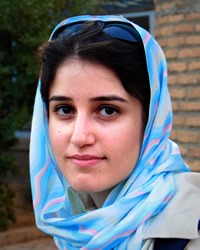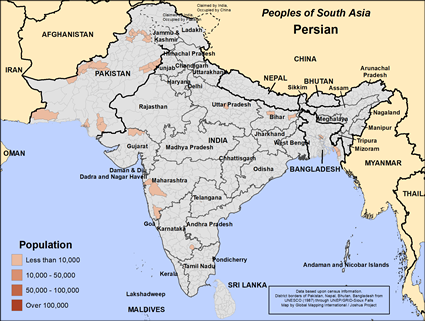By definition, Persians (also known as Iranians) are an ethnic group native to Iran. The Persian language, called Farsi, is part of the Indo-Iranian language family, and is the official language of Iran. Dari, the language of the elite in Afghanistan, is a dialect of modern Persian. Around 1000 B. C., Persian groups began to settle in the territory that is now Iran. Loosely associated Persian tribes became a more cohesive political unit under the Achaemenian dynasty. Their unity soon made them the dominant ethnic group in the region. For 1,200 years, Persia maintained a culture that became increasingly more complex and rigid. This laid the foundation for a successful Arabian conquest in the seventh century A. D. It was not until the Islamic revolution of 1979 that massive changes came both to Iran and to the Persian people.
Although the vast majority of Persians now live either in Iran or in one of the nearby countries, small Persian communities can also be found in many Western nations around the world including Norway. Norwegian-Iranians (also known as Iranian Norwegians; or Persian Norwegian are Norwegians of Iranian descent.
The political climate in Iran has forced many Iranians to seek refuge in Norway and other Western countries. Persian Iranians have managed to assimilate into daily life in Norway despite their cultural distinctions and religious practices. Some have even entered the political arena. They are known among Norwegians as educated, ambitious, and successful members of their nation.
Prior to the Arab invasions, the Persian religion was Zoroastrianism. This religion taught that there was an eternal struggle between the forces of good and evil. Shia Islam became the national religion of Iran in the sixteenth century, at which time the ulama (clergy) began playing an important role in both the social and political lives of the people. Today, most Iranians are officially Shia Muslims of the Ithna Ashari branch. However, the Iranians who have migrated to Norway are usually disillusioned with state-enforced spirituality, especially in light of the hypocrisy which they saw in the Iranian government. For this reason, most are either Shia Muslim in name only or they are secularized. Fortunately, being in a place where there is freedom of religion gives them a chance to hear and respond to the claims of Jesus Christ. The main obstacle is a lack of workers.
Their view of God has been twisted by what they saw in Iran. Iranians in Norway need the chance to hear that Jehovah is a loving God who wants them to have life to the full (Jn. 10:10). They also need loving, patient ambassadors for Christ to introduce them to the One who offers life to the full.
Pray for a Disciple Making Movement to flourish among Iranians all across Europe. Ask the Lord to call and send out people who are willing to share the love of Christ with Iranians. Pray that God will raise up faithful intercessors who will stand in the gap for the Persians. Ask God to strengthen, encourage, and protect formerly Muslim Iranians who have come to faith in Christ. Pray they will reach out to others.
Scripture Prayers for the Persian in Norway.
| Profile Source: Joshua Project |













